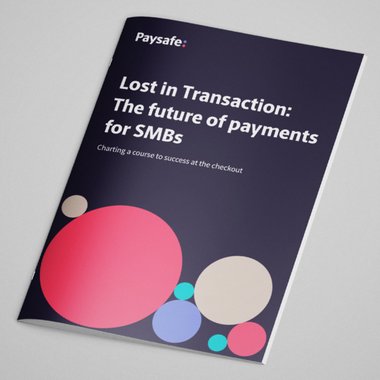
- Two minutes read
How US small businesses can stay ADA and PCI compliant
Key points for small businesses to consider as crucial updates arrive regarding ADA and PCI compliance.
People love the small business experience. And for good reason.
According to our latest global research, Lost in Transaction: The Disposable Income Report, 32% of consumers say the more personalised experience is their favourite thing about shopping online with small businesses. And 31% say it’s because their money stays in the community while supporting a local business.
And at Paysafe, we want to help you continue to offer this brilliant experience to consumers.
Part of that is sharing crucial information that could have an impact on your small business: in this case, explaining crucial updates regarding ADA (Americans with Disabilities Act) and PCI (Payment Card Industry) compliance.
Here’s what these changes mean for you.
ADA compliance for Terminal/PIN pad stands
The ADA ensures equal access for people with disabilities, and recent updates by the U.S. Access Board are set to impact businesses' requirements for accessible Point-of-Sale (POS) devices.
This is a positive step – allowing more people to enjoy small businesses. In addition, small business owners must be aware that failure to comply with these regulations can result in substantial fines and penalties. Here’s what you need to know.
- POS device requirements: All businesses are required to abide by ADA, with the exceptions of churches and private clubs.
- Enforcement and penalties: The Department of Justice (DOJ) oversees ADA compliance, with fines starting at $75,000 for non-compliance and increasing for subsequent offenses. California imposes additional fines ranging from $4,000 to $6,000, and civil lawsuits are also possible. This is under CAL-FIN 13082.
- Tax Credits for SMBs: The IRS provides a 50% tax credit for the purchase of assistive technology. For example, Paysafe’s recommended partner’s patented ADA-approved stands qualify for this credit.
How Paysafe can help
It’s essential for small businesses to be proactive in adapting to these changes, not only to best serve customers, but to ensure compliance and avoid hefty fines.
Paysafe can help by sharing the necessary information, and refer a partner who can provide ADA-approved stands -- Taylor POS, for example, can be a useful resource.
We believe that by staying informed and taking proactive steps, you can ensure a seamless transition to ADA/PCI compliance.
To learn more about how Paysafe delivers friction-free checkout experiences for small business customers, head here.




